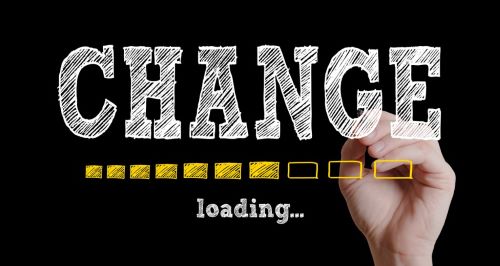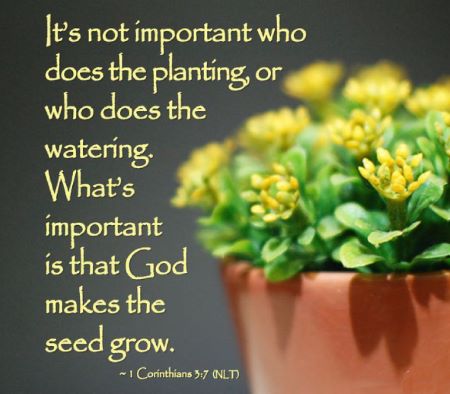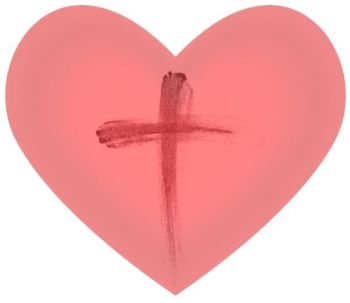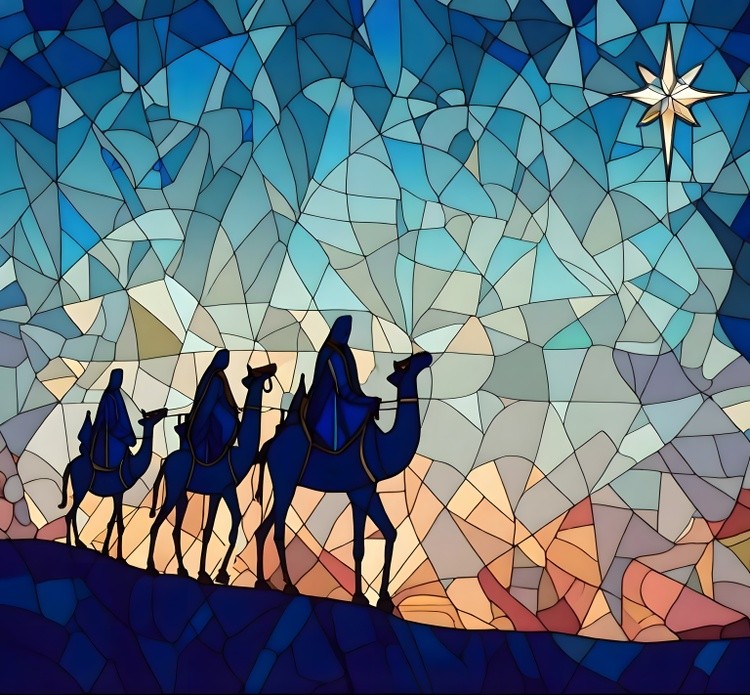
Constrained Boundlessness
We all need some boundaries. We all need some limits. Without them, there’d be chaos. Without them, children would run amok (and so would some adults). Without the boundary of a one-gallon container, milk would glug all over the bottom of the refrigerator. Without the boundaries created by traffic lights, there’d be more accidents. Without denominational boundaries, Lutherans and Episcopalians would just become Lutherpalians. Or perhaps, just Christians.
And we all need labels which name and describe things and people. Without them, it would be difficult-to-near-impossible to compare and contrast. To evaluate. To decide whether to get the MacBook with the 1.4GHz 8th‑generation Intel processor with 16 GB RAM, or the one with the 2.0GHz 10th‑generation Intel processor with 32 GB RAM. To choose to donate to Lutheran Disaster Relief or Episcopal Relief and Development or the Two Churches’ Thank Offering. To know whether to choose Value Meal #1 or Value Meal #3. To hire Candidate A and not Candidate B.
And we all have opinions. And likes and dislikes. And preferences. Some of these preferences came to us as part of our earliest formation. We were weaned on some of them. For example, I vaguely remember sitting in a high-chair and eating pork fried rice (not kosher, I know) with my hands, at a Chinese restaurant owned by my grandfather’s friend. We imitate our parents and do what they did (e.g. they put mustard on hot dogs, so we put mustard on hot dogs). Some of our preferences came to us as part of effective marketing (our parents put mustard on hot dogs, but we put on ketchup or catsup). And we are tightly attached to some preferences, and loosely attached to others.
 At Two Churches, most of us are either Episcopalians or (ELCA) Lutherans. Some of us are neither and came from other denominations. Or other religions. Some are just “Two Churchers.” We are a lovely expression of diversity which is not divisive. And we make room at Table for all, no matter who they are. And I think our success at this comes because we don’t absolutize opinions or preferences. We don’t make our “label” right and other “labels” wrong. We understand ourselves to be “complicated works in progress” with many growing-edges.
At Two Churches, most of us are either Episcopalians or (ELCA) Lutherans. Some of us are neither and came from other denominations. Or other religions. Some are just “Two Churchers.” We are a lovely expression of diversity which is not divisive. And we make room at Table for all, no matter who they are. And I think our success at this comes because we don’t absolutize opinions or preferences. We don’t make our “label” right and other “labels” wrong. We understand ourselves to be “complicated works in progress” with many growing-edges.
I began by saying that we need some boundaries. But to varying degrees, we also understand ourselves to be boundless. We are Grand Rapidians –– but we are also Michiganders. We are Americans –– but we are also North Americans. We are Western Hemispherians –– but we are also global citizens. We are inhabitants of this solar system –– but we are also members of a local star cluster. We are dwellers in the Milky Way galaxy –– but we are also occupants of God’s universe. And I pray that having a broader perspective is something to which we aspire.
I pray for a broader perspective because there has been great social upheaval since March 11, when the WHO declared COVID-19 to be a world-wide pandemic. Great upheaval. It’s almost as though the pandemic opened the lid on what was boiling in a pot. And what’s boiled over has hurt people and caused damage. But I also see the potential for great healing. Because this pandemic has exposed –– more granularly perhaps than ever before –– the injustices which need healing. And healing cannot come, until we name those things which need to be healed. Just as a course of treatment cannot be prescribed before the dis-ease can be named. And if we trust the leading of the Spirit, we don’t need to have the road map laid out precisely in advance to remedy these social injustices, but we do need to acknowledge both their existence (some leaders have actually said that racism doesn’t exist in this country) and our willingness to address them.
We have moved –– some may feel nudged –– farther out into the ever-expanding concentric circles which surround us, into some unfamiliar territory, and into a bit more boundlessness. Into more vision. Into more awareness. Into more understanding. Into more compassion. Into more solidarity with all of our sisters and brothers.
And as we get ready to celebrate Independence Day, we may be/come less inclined to say, “God Bless America” only, and more inclined to say “God Bless All Nations.” And that’s because God’s supremacy doesn’t recognize artificially drawn national or political boundaries on maps; because God’s abundant life is for all people, and is bigger than just one solar system, or just one galaxy.
Mike+








